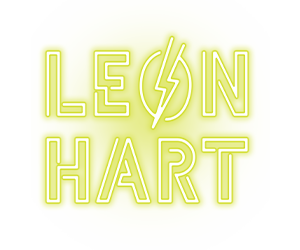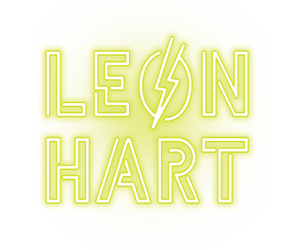In the hustle and bustle of modern life, the ability to maintain focus at work and during studies has become an elusive skill for many. The constant bombardment of information, digital distractions, and the challenges of multitasking often leave individuals grappling with concentration issues. This article aims to unravel the scientific underpinnings of focus-related challenges, offering a deep dive into the neuroscience of focus, identifying common hurdles, and providing practical tips and product recommendations to reclaim control over your attention.
The Neuroscience of Focus
Understanding how focus operates at a neurological level is crucial for developing effective strategies. The brain plays a pivotal role in concentration. Neurotransmitters, including dopamine and norepinephrine, influence cognitive functions. Picture this: you're deep into a task, and suddenly your attention shifts. In your brain, neurotransmitters, the messengers responsible for communication, experience a fluctuation. This disruption can lead to a decrease in your ability to concentrate.
Let's delve into the specifics: stress, lack of sleep, and poor nutrition can throw these neurotransmitters out of balance. Studies show that chronic stress can result in elevated cortisol levels, affecting focus. Moreover, inadequate sleep has been linked to impaired cognitive function, hindering our ability to stay on task. Nutritional deficiencies, such as insufficient omega-3 fatty acids, can impact neurotransmitter production, influencing concentration.
Understanding these processes sheds light on why people easily lose focus. It's not merely a lack of willpower; it's a complex interplay of factors within our brains. By recognizing these dynamics, we can take informed steps to address the root causes, fostering a more focused and productive mindset.
Identifying Common Challenges
When it comes to tackling problems with focus, recognizing the everyday challenges is crucial. Let's explore these hurdles and back them up with facts and figures:
Digital Distractions
In our technology-driven era, smartphones contribute significantly to digital distractions. On average, people check their phones every 12 minutes, resulting in interruptions that can take up to 23 minutes to refocus (source: RescueTime). The constant connectivity undermines cognitive flow, making it challenging to sustain attention on important tasks.
Multitasking Myth
Despite its perceived benefits, multitasking can lead to a significant reduction in overall productivity. Research from Stanford University reveals that chronic multitaskers perform poorly in tasks requiring cognitive control, as they struggle to filter irrelevant information. The myth of efficient multitasking unravels when confronted with such findings.
Environmental Factors
External elements, such as noise and discomfort, pose formidable challenges to focus. Studies conducted by the World Health Organization indicate that excessive noise levels in urban environments can contribute to cognitive impairment, affecting attention and memory. Creating a conducive workspace with minimal disruptions becomes imperative for maintaining optimal concentration.
Lack of Interest or Motivation
Apathy or a lack of motivation is a pervasive challenge. A Gallup poll found that only 34% of U.S. employees are engaged at work, indicating a significant portion struggling with motivation. When interest wanes, sustaining focus becomes an uphill battle. Recognizing and addressing motivational factors is key to overcoming this common hurdle.
Tips to Improve Focus
When it comes to boosting focus, implementing effective strategies is key. Let's delve into these techniques and support them with facts and figures:
Ergonomics and Workspace Organization
A well-organized and ergonomic workspace significantly impacts focus. According to a study published in the Journal of Experimental Psychology, physical clutter competes for your attention, leading to decreased performance and increased stress. Implementing ergonomic principles not only reduces physical distractions but also enhances overall well-being.
The Pomodoro Technique
Advocating for short, focused work intervals, the Pomodoro Technique is backed by scientific principles. Research from the University of Illinois suggests that brief breaks during tasks can help maintain constant performance levels and prevent a decline in attention. Implementing this technique can be a game-changer in sustaining focus throughout the day.
Time-Blocking
Allocating specific time blocks for different tasks is a proven strategy for productivity. The American Psychological Association (APA) emphasizes the benefits of time management, stating that it reduces stress and enhances overall well-being. By consciously structuring your time, you create dedicated periods for focused work, optimizing your cognitive resources.
Prioritizing Tasks and Setting SMART Goals
Breaking down tasks into smaller, manageable steps is not just a practical approach but also aligns with psychological principles. The concept of chunking, where information is broken down into smaller units, is supported by cognitive psychology. Setting SMART goals - specific, measurable, achievable, relevant, and time-bound - ensures a clear roadmap, enhancing motivation and focus.
These evidence-based strategies provide a structured approach to conquering focus challenges. By integrating them into your work and study routine, you empower yourself to navigate tasks with increased efficiency and sustained concentration.
For an additional boost, consider incorporating Leonhart High-Caffeine Coffee or Leonhart High-Caffeine Hot Chocolate into your routine,
which is designed to help individuals concentrate at their best.
In conclusion, unraveling the science behind shifting focus involves a multi-faceted approach. This comprehensive guide has explored the neuroscience of focus, identified common challenges, and provided practical tips and product recommendations. It underscores the ongoing nature of maintaining focus, encouraging readers to experiment with various strategies to find what works best for them.







